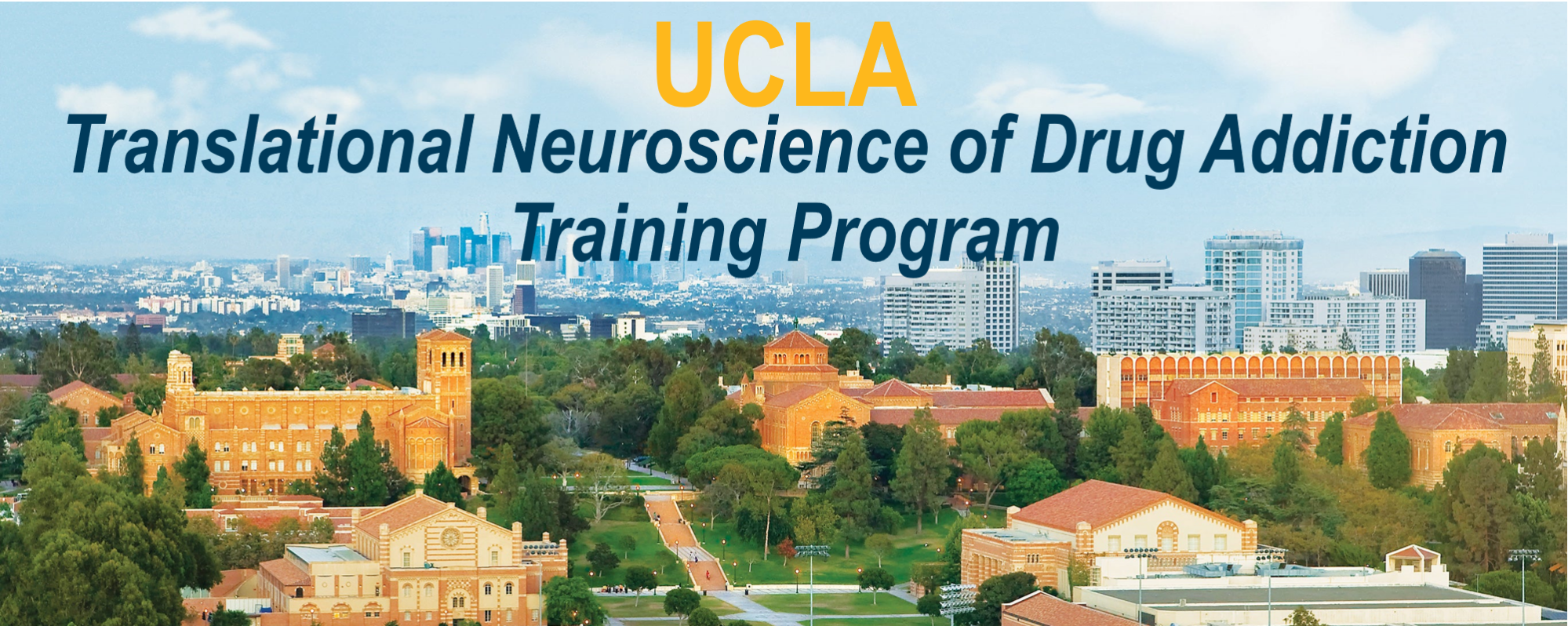The application period for the 2025-2026 TNDA T32 program has closed. Check back here for the application call for 2026-20027 in Spring 2026
In its 15th year, the UCLA Training Program in the Translational Neuroscience of Drug Addiction (TNDA) provides multidisciplinary training that spans the fundamental bases of addiction from the genome to neural phenotypes and ultimately the syndrome of addiction, with particular strength in molecular and cellular, behavioral and systems, and cognitive and clinical neuroscience.
The goals of the UCLA TNDA T32 are:
- To train the next generation of leaders in translational addiction neuroscience by providing a unique, rich, and supportive environment for training and cross-talk between basic, preclinical, and clinical research.
- To recruit and enroll highly qualified candidates from all backgrounds committed to translational addiction neuroscience research. The TNDA recruits and welcomes applications from trainees or all backgrounds.
- To enable trainees to conduct and disseminate cutting-edge addiction neuroscience research, including evidence-based hypothesis formation, experimental design, data acquisition and analyses, and preparation of findings for presentation at national and international conferences and for publication in top peer-reviewed journals.
- To provide the resources, opportunities, and training that will enable trainees to generate novel, impactful, and translational hypotheses, specific aims, and NIH grant proposals. This will enable trainees to secure funding to pursue independent research across a range of NIH and non-NIH mechanisms.
- To provide professional development for trainees to successfully identify and secure research and addiction-related careers. Strong mentoring and professional development will be emphasized to enhance the success of trainees from all backgrounds.
